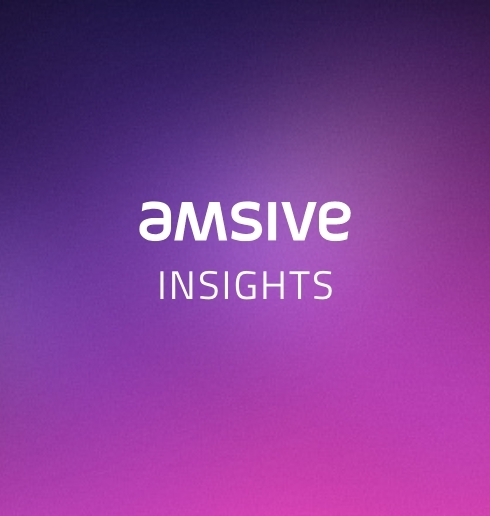With Gen Zers beginning to expand their buying power, the banking industry must adapt its marketing strategies to attract a younger clientele and retain their business. Gen Z and Gen Alpha are known for their digital fluency, tech-savviness, and distrust of traditional banking institutions.
Traditional banking has faced competition from FinTech for the last decade and has often struggled to adapt to new and similar technologies that make these institutions so popular with younger generations. Personalized digital experiences and offers, user-friendly interfaces, and mobile-first banking solutions are among the top considerations when adapting banking solutions to suit new customers.
We’ll explore top tips to reevaluate and modernize your bank marketing strategy, including strategic considerations, technical applications, and overall improvements that financial marketers need to consider when attracting new customers online and in-person.
Jump To:
Reassess your target audience
Revamping your strategy starts with a healthy dose of reevaluating your audiences. While banks have traditionally had a far more linear path from customer acquisition to retention, Gen Zers are changing the game. They expect a brand to win their interest and trust early in the acquisition process and are less likely to be swayed by traditional ad forms, including OOH, TV, print, radio, and podcast ads.
One way our team does this is through our unique Audience Science™ approach, as well as data and intelligence from our Xact™ agency data platform. Marketers can pinpoint and target prospective customers accurately from product discovery through sign-up using data-enriched audience models, ensuring that we’re prioritizing your best audience.
Where possible, take advantage of zero- and first-party data. By surveying current customers, identifying relevant product cross-sells, preferred perks or rewards, banks can identify areas of improvement. Understanding the needs and expectations of existing customers allows banks to tailor their products, services, and digital experiences to better meet the demands of existing and incoming customers. This strategy can also help you redefine your ideal audience. Identifying your customer’s patterns can help you pick out who among your current customer base is committed to your brand, and who may be open to the opportunities that your financial institution can provide, helping you drive growth.
You don’t have any Gen Zers to ask? You are not alone–many financial institutions we work with are struggling with an aging customer base. For these FIs, we recommend engaging in focus groups to dive deeper into their needs and expectations.
Employing this data-driven approach can help foster customer loyalty and enhance retention, ensuring that targeting a new audience segment and producing new content won’t leave current customers out in the cold.
Publish truly helpful content
Google has published two helpful content updates in the last year. As banks are part of the highly scrutinized Your Money Your Life (YMYL) category, it’s important that any published content is both informative and engaging. With the insights gleaned from your audience reassessment, create educational content that addresses common issues, questions, and knowledge gaps.
As influencers like Tori Dunlap and Vivian Tu grow in popularity, it’s clear that younger generations are looking for content around financial literacy, including investment, wealth-building, and home buying. Your content can range from the basics of budgeting to more complex financial planning strategies.

Clearly explaining banking terms, product and service features, demystifying complex financial concepts, and building FAQs around common concerns (such as cybersecurity and fraud prevention) demonstrates proactive customer care on the part of an institution. By focusing on creating helpful and valuable content, banks can balance loyal customer concerns while attracting customers who are looking for reliable information and guidance. This can offer them the opportunity to connect with FIs one-on-one.
Identify opportunities for branch-specific marketing
When an account is hacked or a card is lost, or stolen, the power of the person still reigns supreme. The ability to go into a local branch and rectify the situation provides reassurances that cannot be beaten. Advertise your branch locations by creating and optimizing your location pages for local SEO. While this sounds like a simple task, it’s more involved than listing basic location info. By going beyond the essentials and providing valuable, detailed information, businesses can increase their visibility in local search results and attract more potential customers.
Providing your address, cross streets, notable destinations or businesses near you will not only make you more identifiable to customers, but signal to search engines that your business profile provides content that is helpful to your customers. Aligning your branch location across local directories like Yelp can help improve your branch’s credibility and visibility in local searches.
Creating and optimizing your branch location pages for local SEO relies on a combination of keyword use, hyper-local content, and user-focused information, such as parking availability and disability-accessible location features. By going beyond the basics and providing valuable content that speaks to the unique characteristics of the business’s location, businesses can drive consumers and boost local search result visibility.
Optimize your search engine presence
While widely considered to be a social-first generation, Gen Zers are more likely to explore search engines and bank websites for banking institution decisions before they turn to social media. Meanwhile, as Gen Alpha is at the beginning phases of their banking journey, consider what their parents or guardians may be exploring for their children’s needs.
By optimizing paid search ads for product keywords like “student savings account” or “digital banking for teens”, you can ensure that your ads appear prominently when users are actively searching for banking solutions. Offering these products to younger generations can encourage them to begin banking with an institution they can grow with.
Where you can, highlight features designed for convenience, including branch information, customer services, savings tools, and mobile banking solutions.

Beef up your app offering
When telephone banking and ATMs first came on the scene, many banks thought it was the end of the branch. When mobile banking was added similar thinking prevailed although now with the hope of streamlining costs and reducing branch reliance. Many institutions wanted the benefits mobile banking apps would provide but didn’t want to make the investments to get to a best-in-class experience. With 89% of consumers using a banking app, a bank lacking a user- friendly mobile app is a red flag, and a sign of being behind the times.
Ensuring that your app’s design is intuitive and user-friendly is paramount. Integrating secure and seamless login options, streamlining navigation, and simplifying account management features can all enhance user experience.
Where you can, solicit user feedback to address issues while adapting to evolving consumer needs. Improving performance, enhancing security, and introducing mobile-first banking solutions like mobile deposit and budgeting tools directly in the app UI can highlight the bank’s commitment to customer needs and innovation.
Interact on social in ways that makes sense for you
Before you hop onto the newest social platform just because your audience is there, assess whether its tone, format, and engagement types align with your goals. Social media offers the unique opportunity to have public one-to-one interactions with customers in a way that highlights your commitment to customer satisfaction, but if you have no interest in engaging in these conversations, creating an account that simply houses your promotional content may do more harm than good.
Consider partnering with financial influencers to encourage a more authentic presence and conversation around your brand’s products and offerings. Banks can often seem like faceless entities devoid of personality, but working with content creators can help humanize your social presence, encouraging participation from current and prospective customers.
Engage them with email
Financial services have a better overall click-through-rate than other industries, including media, real estate, and retail. Use your audience segmentation and strategy to create nurture campaigns. Personalized emails tailored to specific customer segments can introduce new customers to the bank’s offerings in a bite-sized format. Newsletters, roundups or FAQs of educational content on financial literacy, and updates on new products can demonstrate your value as an institution.
Moreover, email automation can nurture leads through personalized drip campaigns. By sending timely reminders, follow-ups, welcome sequences, or promotions for upcoming offers or events, you can stay top-of-mind and guide prospects through the customer journey.
You can also use these emails to showcase your bank’s commitment to sustainable banking practices. Advertising features such as automatic paperless enrollment can highlight the institution’s focus on building a better world for younger consumers.
Invest in your future customers
As Gen Z and Gen Alpha are beginning to find their footing in the financial marketplace, it’s important to remember that they’re still in need of guidance and education around financial skills. Establish programs that promote the importance of financial literacy. These can include in-person workshops, seminars, or online resources that teach basic finance principles.
Leverage digital ads, optimize your SEO and social media to connect with audiences that prefer those channels to encourage product discovery and exploration. By sharing educational content and promoting interactive financial tools, banks can engage with future customers proactively and nurture relationships that lead to acquisition down the road.
Acquiring new customers using these tactics will build a foundation of trust and loyalty that extends the length of their financial journey.
Explore how your brand can balance messaging to your loyal customers while targeting new audiences with cross-channel brand cohesion, or let’s talk about achieving more for your marketing—and your business.





